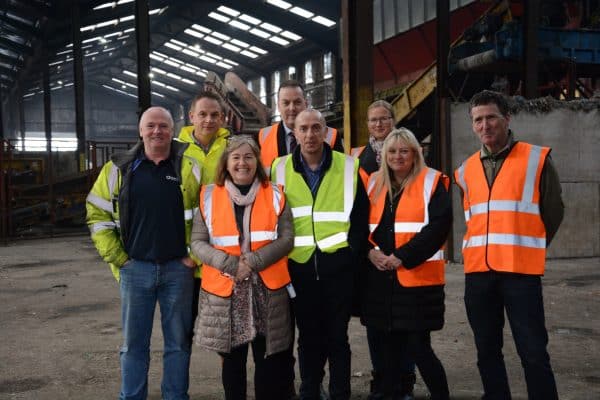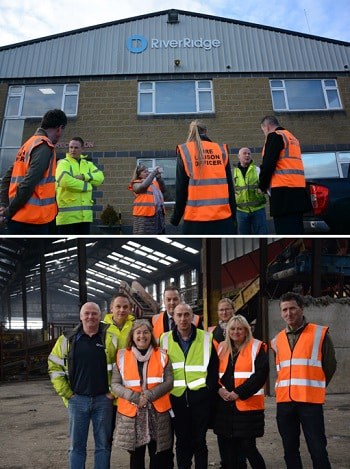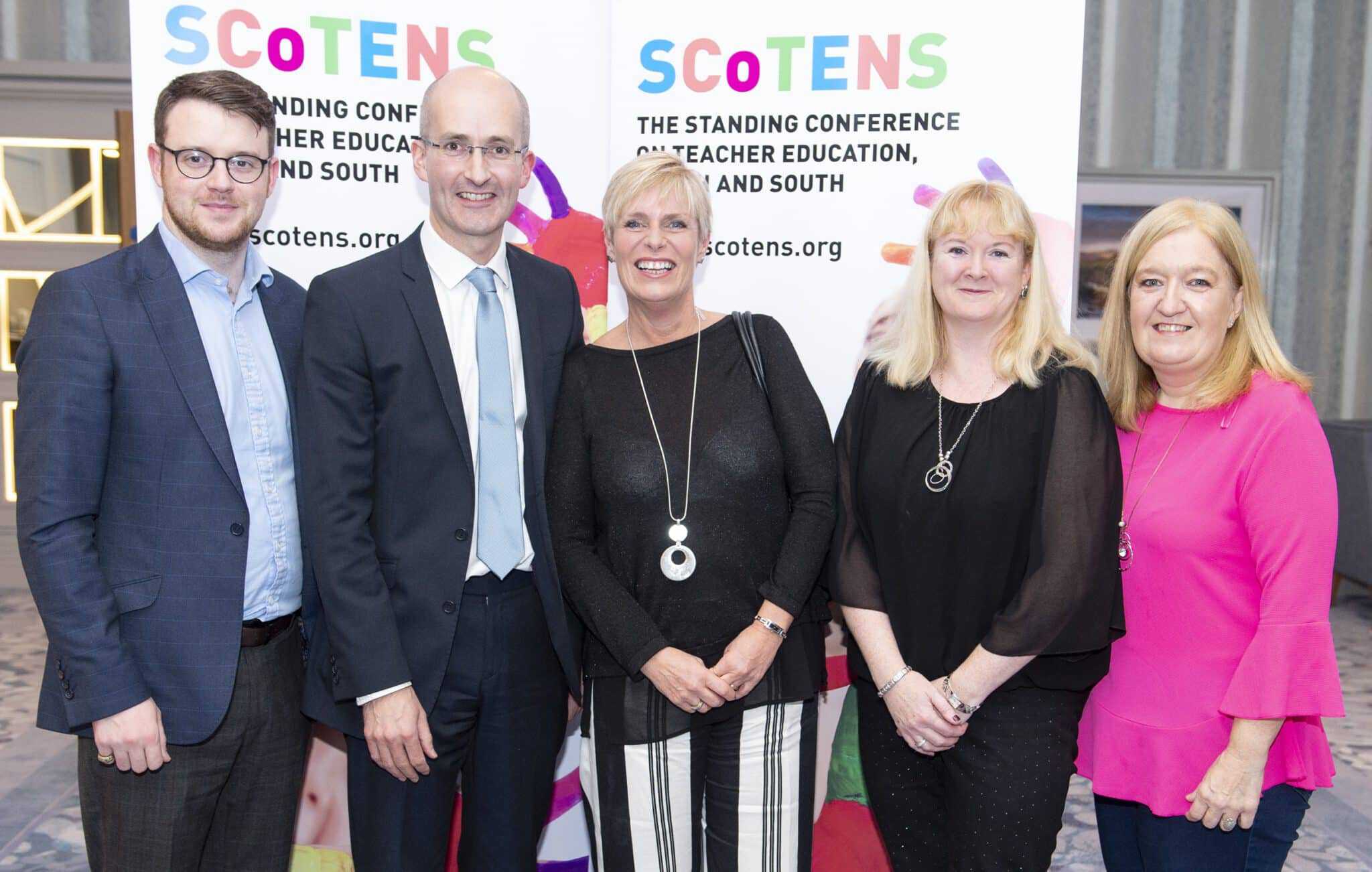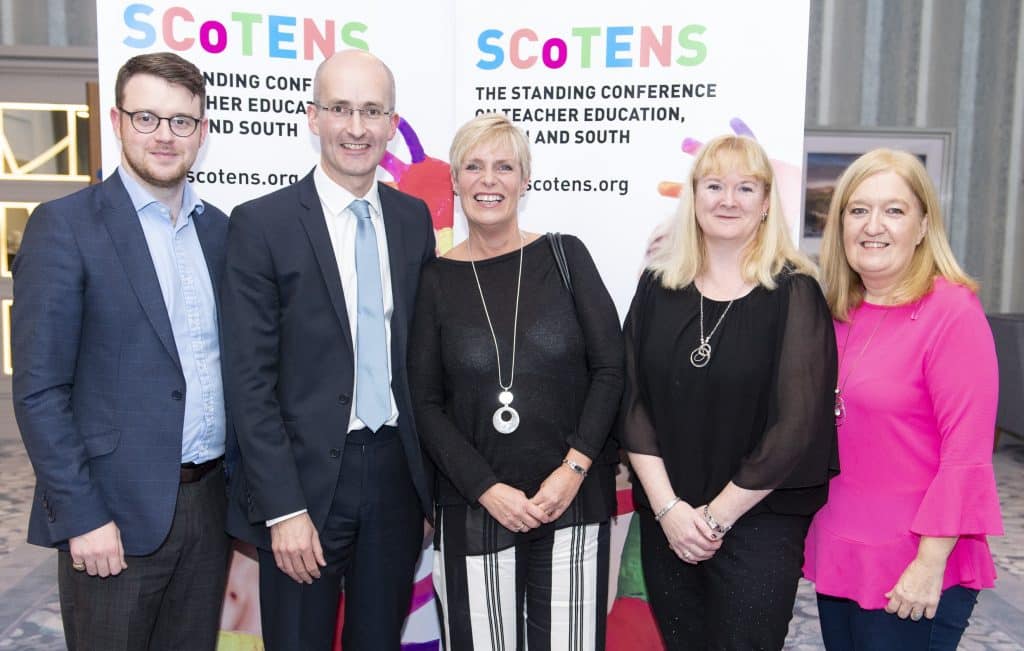Hazelwood Integrated College is the first Post Primary school in NI to launch The Daily Mile. 220 Year 8 pupils ran with the Children’s Commissioner, members of the Northern Ireland British Psychological Society, school Principal Máire Thompson, Maria Robb, Pastoral Care Co-ordinator, and members of TDM Network NI.
As part of Psychology Week, over 4,000 children across schools in Northern Ireland took part in The Daily Mile on this day, running or walking one mile as part of an initiative to improve the mental and physical wellbeing of school children.
The Daily Mile (TDM) is a simple and free initiative for schools and nurseries, encouraging children to run or jog at their own pace for just 15 minutes every day, outside with their friends. Research has found that this exercise in a natural outdoor environment can rapidly improve self-esteem, relieve stress and anxiety and increase children’s overall happiness.
More than 9,500 schools are already registered for The Daily Mile in over 60 countries. Northern Ireland has 371 schools (30% of all schools) currently registered, but Hazelwood Integrated College is the first post-primary school in Northern Ireland to sign up to The Daily Mile with help from TDM Network NI members.
The Daily Mile Network NI consists of members from Stranmillis University College, Ulster University, St Mary’s University College, Public Health Agency, Health and Social Care Trusts, Sustrans, Education Authority and the Northern Ireland British Psychological Society.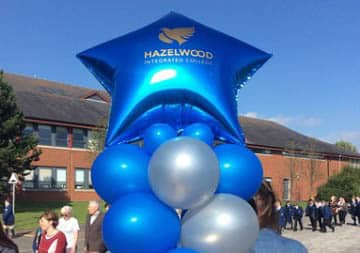
Stranmillis ECS lecturer Dr Brenda McKay Redmond, who is Chair of the Daily Mile Network and a representative on the TDM Research Advisory Group in London said:
“It is important to have adult role models doing TDM with children to show inclusiveness and the encouragement of the development of children’s relationships with their friends. It is about fun, freedom, fitness, improving health and wellbeing and being outside in the fresh air.”
Northern Ireland Commissioner for Children and Young People, Koulla Yiasouma said:
“The benefits of the Daily Mile go far beyond staying physically healthy. Older children can buddy up with younger kids, helping to build community. It’s a great social activity for children to bond with their peers in a safe environment and it definitely helps concentration. It’s really positive that so many schools and clubs already take part in the Daily Mile and I hope that today encourages even more to get involved.”
Prof. Nichola Rooney, Northern Ireland Chair of the British Psychological Society commented:
“The Daily Mile is a fantastic initiative as it is fully inclusive – every child, whatever their circumstances, age or ability can succeed at The Daily Mile. It also instils constructive habits from a young age which will continue to generate positive behaviour as the child develops. The Daily Mile research report finds that children feel happier, more awake and calmer after completing the one-mile challenge. On self-assessment questionnaires, children’s self-esteem, wellbeing and satisfaction all improved. These skills are essential skills that will ultimately help children’s ability to learn. We’re thrilled to be organising Northern Ireland’s first ‘Daily Mile Post Primary School’ as part of Psychology Week in association with TDM Network NI and our hope is that this is the beginning of a province-wide daily activity that will help children perform at their best every single day.”
Those wishing to follow in the “footsteps” of Hazelwood Integrated College, please register your school with www.thedailymile.co.uk .
For further advice and guidance contact TDM Network NI by e-mailing Brenda at b.mckayredmond@stran.ac.uk.
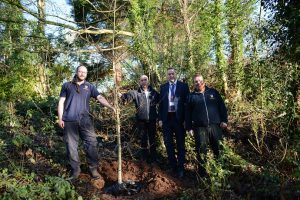 In support of Stranmillis University College’s Eco Campus initiative, the College’s Estates team were recently involved in planting 24 new oak and beech trees around the campus as part of the College’s felling and restocking programme to improve the health, structure and diversity of campus woodland.
In support of Stranmillis University College’s Eco Campus initiative, the College’s Estates team were recently involved in planting 24 new oak and beech trees around the campus as part of the College’s felling and restocking programme to improve the health, structure and diversity of campus woodland. 
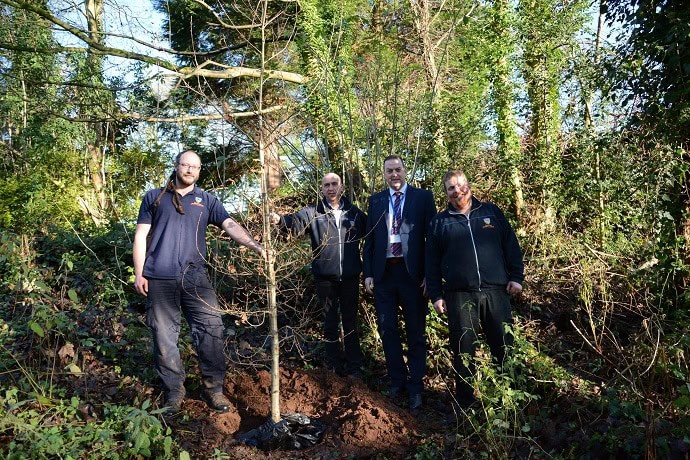
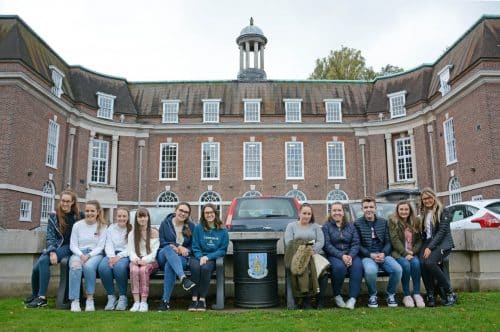
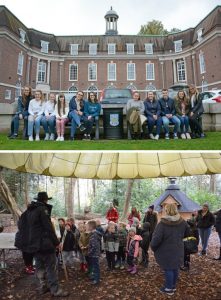 Year 1 Primary BEd students whose Area of Specialism is WAU Geography/History have been spending some time out and about looking at outdoor learning activities.
Year 1 Primary BEd students whose Area of Specialism is WAU Geography/History have been spending some time out and about looking at outdoor learning activities.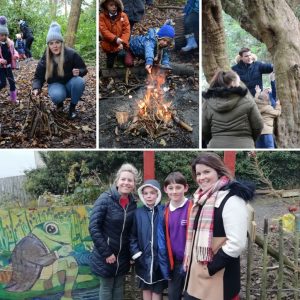 the students and lecturer Dr Richard Greenwood were invited to take part in a Forest School activity morning with P1 and P2 pupils from Silverstream Primary School in Carrickfergus, their classroom assistants and their teachers, both former Stran students, Claire Cranston and Jancis Logue.
the students and lecturer Dr Richard Greenwood were invited to take part in a Forest School activity morning with P1 and P2 pupils from Silverstream Primary School in Carrickfergus, their classroom assistants and their teachers, both former Stran students, Claire Cranston and Jancis Logue.